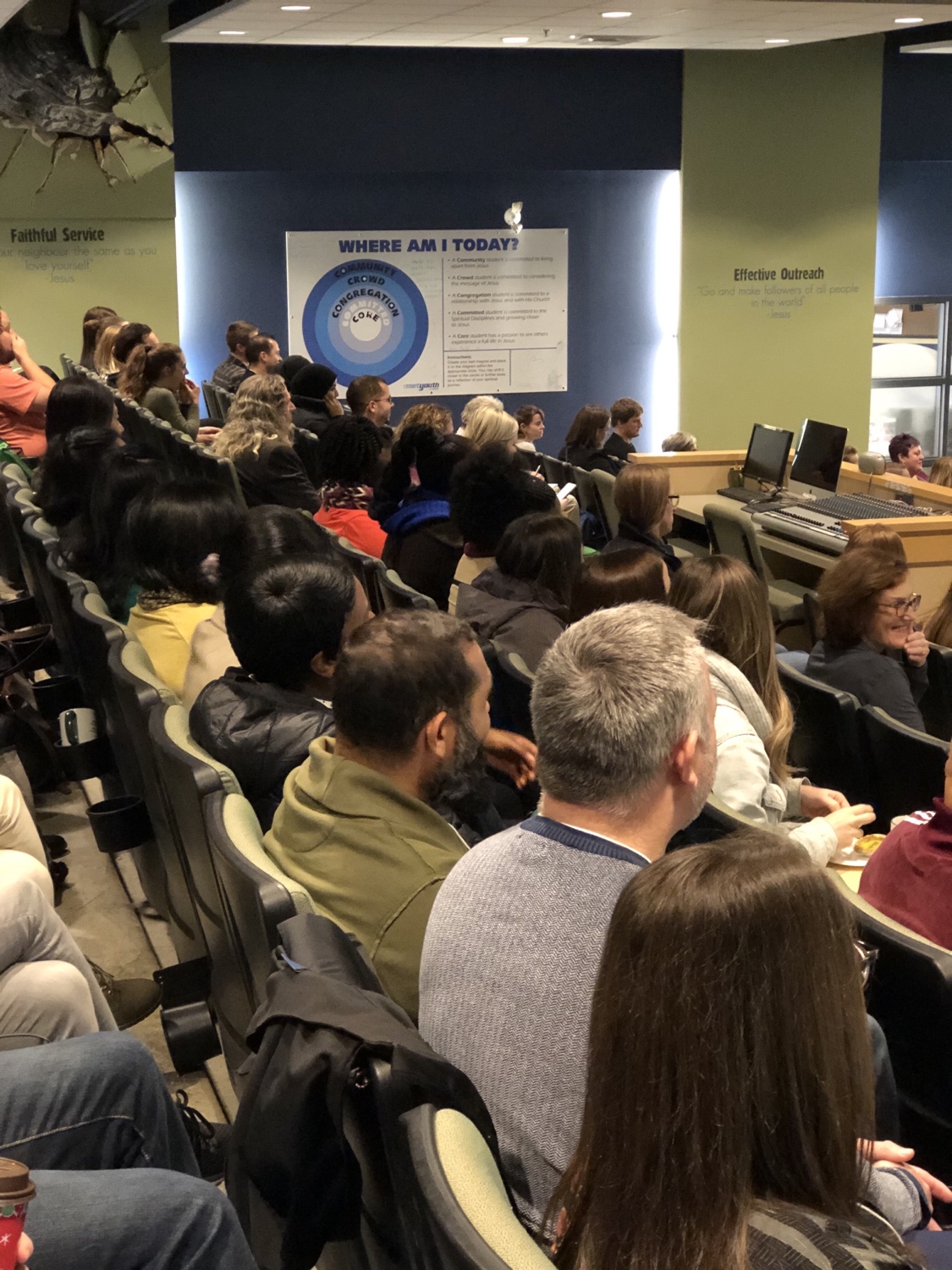Jan 23rd, 2020
2019 OCH Partnership Forum

Share this story
Thank you for your interest in the 2019 OCH Partnership Forum
Please find more information on the synergy tables offered this year.
Synergy Table Presentations
1) “D.O.P.E. (Drug Overdose Prevention & Education) Response Team”
– Abdi Khalif, Samantha Scott, David Cowen and Hana Haines- Somerset West Community Health Centre
The D.O.P.E. Response Team is a Community Health Centre lead program, offering assertive outreach in the Centretown, Carlington and Somerset West catchments. The project will focus on increasing access to health promotion, prevention, treatment and harm reduction services among high-risk people who use drugs.
A peer-based approach ensures that people with lived experience have opportunities to:
- gain knowledge, skills and work experience
- build ongoing trust and relationships with service providers through workplace inclusivity
- engage mainstream professionals in understanding how the role of someone with lived experience can help reduce barriers to accessing services for high-risk individuals
Recognizing the value of people with lived experience, this project offers a peer-lead overdose prevention and response team for high-risk rooming houses and Ottawa Community Housing buildings, to identify, engage and build capacity for safer practices.
2)“Working Towards Reconciliation”
Sylvie Lajoie (Director of Programs, Wabano Centre for Aboriginal Health) and Anita James (Director, Strategic Initiatives, Ottawa Community Foundation)
With the Truth and Reconciliation Commission’s Calls to Action and increasing activities to engage both Indigenous and non-Indigenous communities, there is more information and guidance than ever before to support work towards reconciliation. Regardless, there are still many questions about where to start and how to engage meaningfully. There may be various answers to these questions, but we need to acknowledge that the time to engage together is now. Join us for this synergy table to learn real experiences of how to move forward towards understanding and acknowledging the ‘truth’, how we work towards putting reconciliation into practice and build meaningful relationships. This session will allow for further awareness and a chance to have honest and respectful conversations to inform your next steps.
3) “Creating an Inclusive and Equitable City through Collective Planning and Action”
– Denise Deby (Ottawa Local Immigration Partnership)
What does it take to create an inclusive, welcoming and equitable city? This synergy table will focus on the Ottawa Local Immigration Partnership (OLIP)—60 organizations working together to build local capacities to attract, settle, and integrate immigrants in Ottawa. It will cover two of its community-wide initiatives: Equity Ottawa and Welcoming Ottawa Week. Equity Ottawa is a community of practice of organizations and community members sharing experiences, tools and plans for creating equitable and racism-free institutions. Welcoming Ottawa Week is an annual series of arts and culture, sports, educational and other fun and thought-provoking events hosted by more than 50 partners to celebrate Ottawa as a welcoming city and connect newcomers and long-term residents.
The discussion will be a space to share experiences, ideas, strategies and next steps for creating an inclusive, welcoming and equitable city together.
4)“Breaking Down Social Isolation for Ottawa Seniors: The Strengthening Seniors Neighbourhood Networks Project (SSNN)”
– Mary Ann Jenkins and Lydia Botros (Community Health Workers, South-East Ottawa Community Health Centre)
The Strengthening Seniors’ Neighbourhood Networks (SSNN) Project began in 2016, with a three-year investment from ESDC. Building on the principles of community development, the project cultivated the strengths and capacities of individual seniors and their social networks in ten OCH buildings. Working with our community partners, SSNN engaged over 700 vulnerable seniors who were at risk of becoming socially isolated due to low income, language barriers and/or living with a disability. The program developed a range of services, strategies and approaches to effectively identify and engage these seniors and to reduce their vulnerability.
As we come to the end of the project, we would welcome the opportunity to share both our Lessons Learned and Promising Practices with other organizations engaged in similar work. Topics in this presentation will include:
- Using a Community Development Framework
- Working with Community Partners
- Outreach to Culturally and Linguistically Diverse Neighbourhoods
- Suggestions for Activities and Events
5) “Awesome Arts en folie”
– Gerald Dragon (Sandy Hill Community Health Centre) and Micheline Shoebridge (Multi-Cultural Arts for Schools and Communities-MASC)
Awesome Arts is MASC’s internationally award-winning community-engaged arts program that allows participants of all ages to explore important issues through the arts. Awesome Arts is a series of free workshops led by professional artists for different age groups, culminating in a public celebration. Participants use various art forms, which include animation, music, theatre, spoken word poetry, visual art and dance as tools to express themselves.
Awesome Arts brings together residents from different linguistic, cultural and ethnic backgrounds, all co-creating together. The program provides ideal opportunities to break down stigma and ignorance and build towards empathy and acceptance. The success of these programs has demonstrated how arts-based programs can be effective tools for community and cultural engagement.
Join us for this synergy table to learn more and experience a hands-on creative exercise.
6) “Youth Leadership Creating Inclusive Community Spaces through Outdoor Play”
–Seth Mbanzare and Natalia Valencia (Play in Parks Initiative)
Play in Parks began in 2018, as a pilot initiative led by the Child and Nature Alliance of Canada (CNAC) in partnership with Andrew Fleck Children’s Services and Ottawa Community Housing. It is a project centred on a youth mentorship program, which aims to break down barriers for youth to obtain meaningful employment and leadership skills. It also increases free, unstructured, active outdoor play opportunities for children aged 3 to 12 years old residing in Ottawa Community Housing.
This Synergy Table will be facilitated by two youth who delivered the Play in Parks programming, along with a CNAC representative. We will share our learnings about the project’s implementation, approach to training and youth mentorship; the youth’s lived experiences through the unique employment opportunity, and community outcomes and stories. This synergy table will inspire other organizations to take an equitable, innovative, and emergent approach to working with children and youth.






